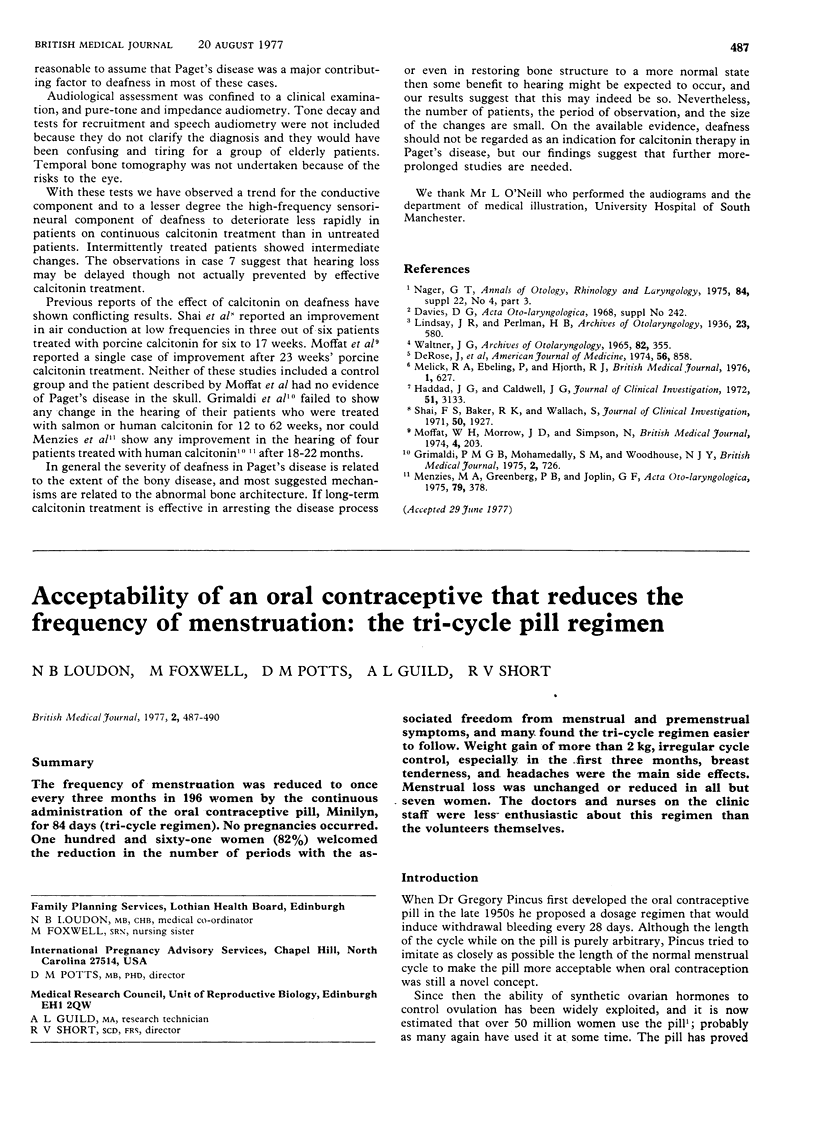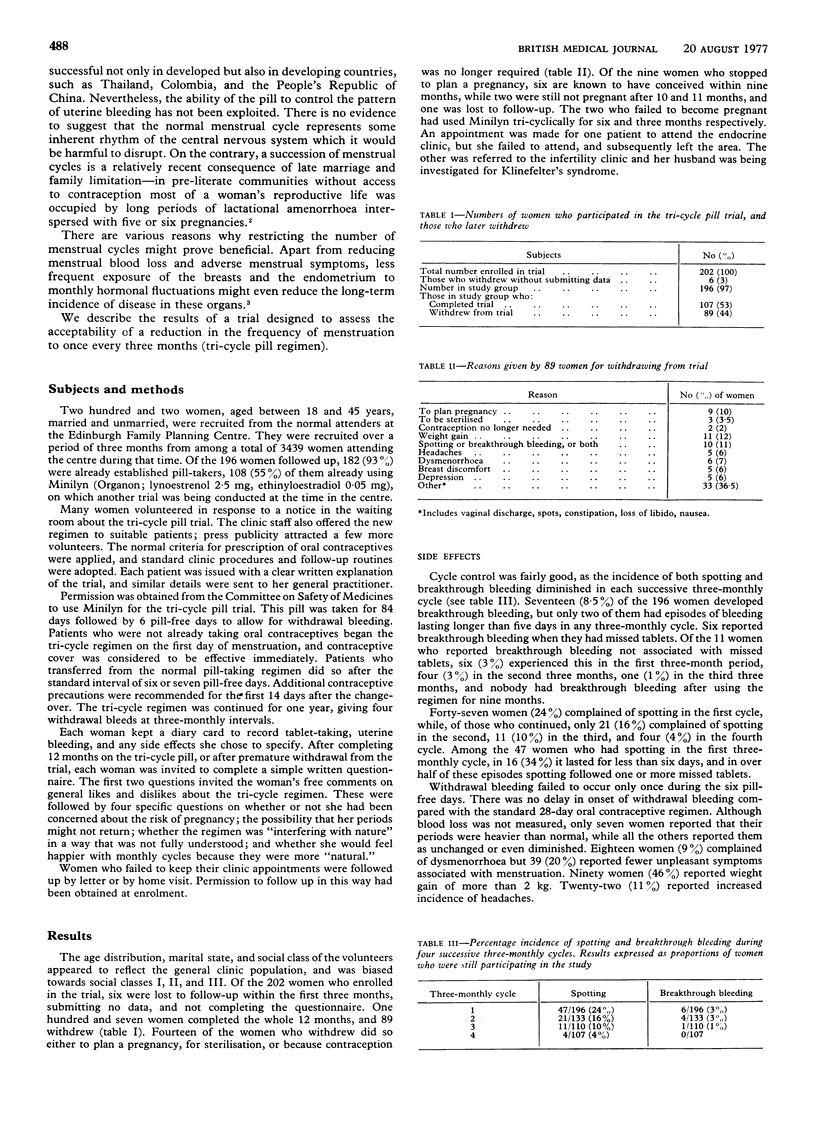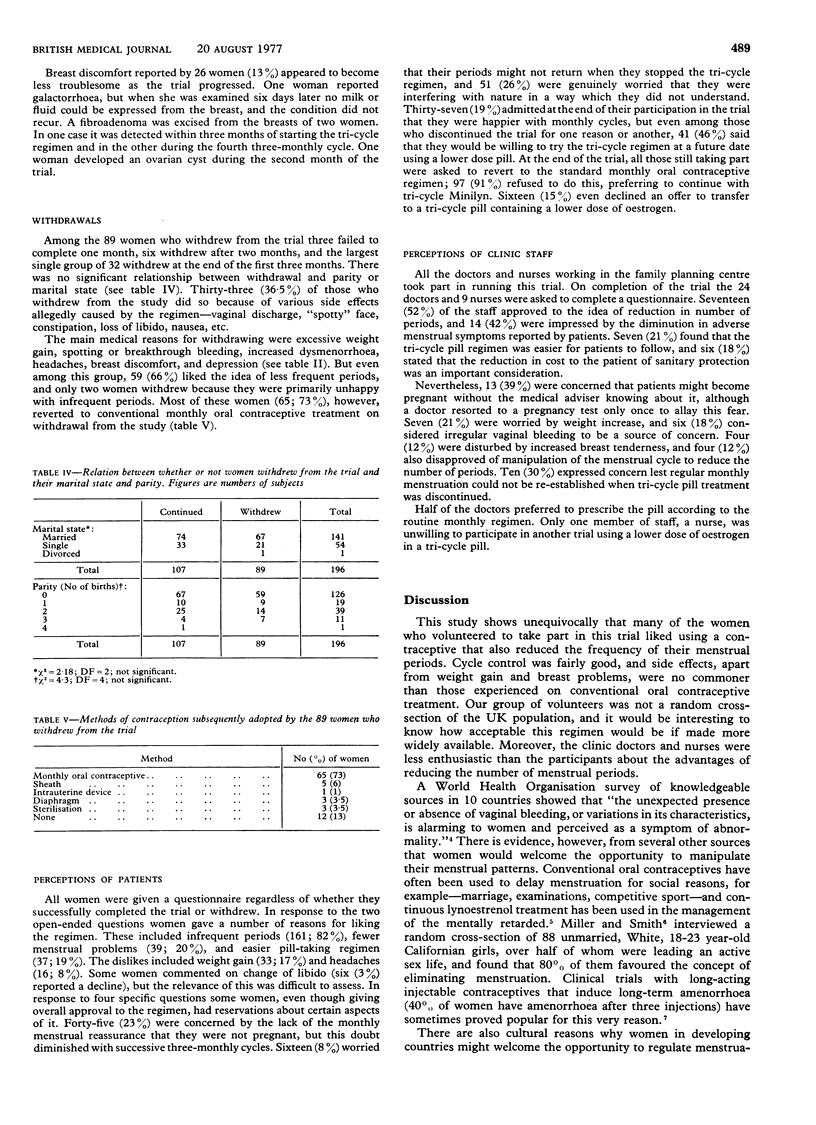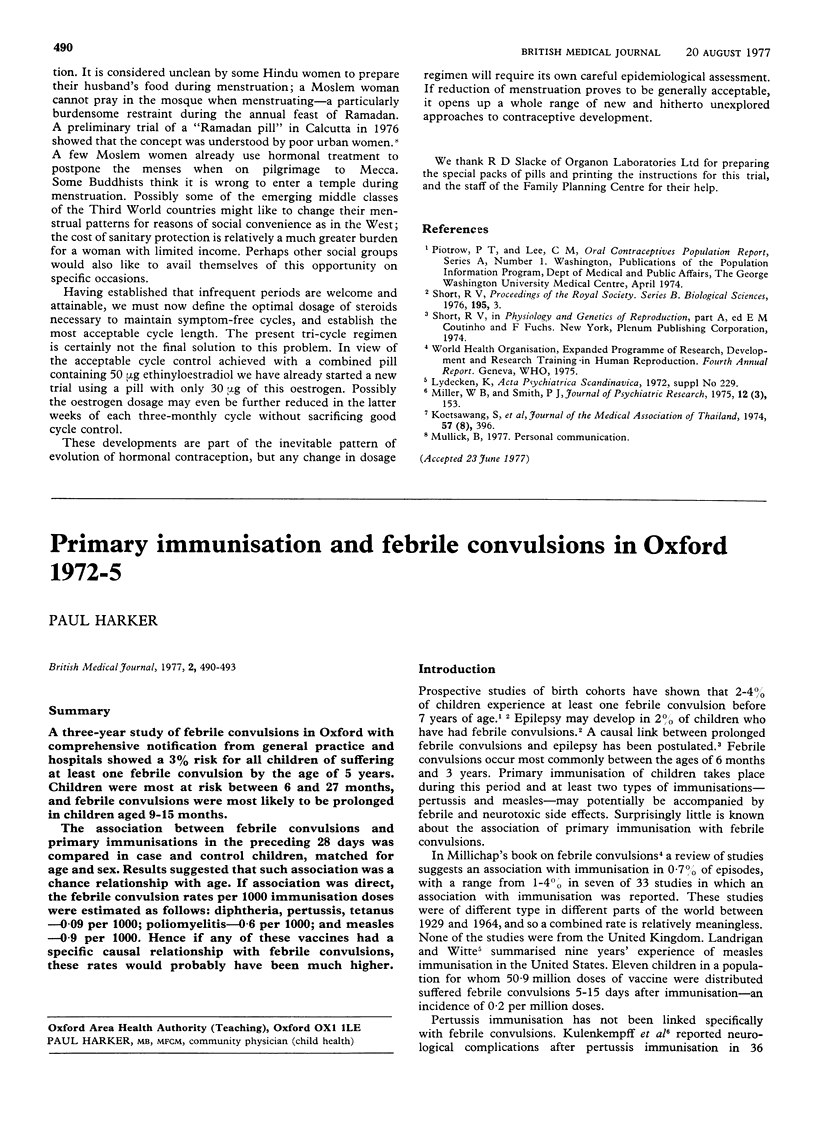Abstract
The frequency of menstruation was reduced to once every three months in 196 women by the continuous administration of the oral contraceptive pill, Minilyn, for 84 days (tri-cycle regimen). No pregnancies occurred. One hundred and sixty-one women (82%) welcomed the reduction in the number of periods with the associated freedom from menstrual and premenstrual symptoms, and many found the tri-cycle regimen easier to follow. Weight gain of more than 2 kg, irregular cycle control, especially in the first three months, breast tenderness, and headaches were the main side effects. Menstrual loss was unchanged or reduced in all but seven women. The doctors and nurses on the clinic staff were less enthusiastic about this regimen than the volunteers themselves.
Full text
PDF



Selected References
These references are in PubMed. This may not be the complete list of references from this article.
- Koetsawang S., Srisuphandit S., Srivanaboon S., Bhiraleus P., Rachawat D., Kiriwat O., Koetsawang A. Intramuscular depomedroxyprogesterone acetate for contraception. J Med Assoc Thai. 1974 Aug;57(8):396–406. [PubMed] [Google Scholar]


